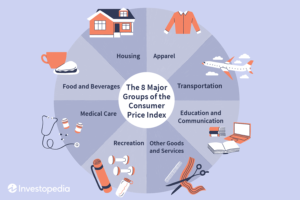What is the purpose of an indexation clause?

These clauses usually sit in the payment terms section of terms & conditions. If you are in a long term supply agreement, as a purchaser, you will want to make sure that the product prices remain favourable to you throughout the term. However, as a supplier, you will want to make sure that you keep up with inflation and be able to adjust your prices accordingly. The solution is to have a clause which sets out that product prices may be adjusted based on changes to certain indexes agreed upon at the outset.
What is a price index?
Put simply, a price index is the measure over time of the cost of goods that you put in an imaginary shopping basket. There are different types of ‘basket’ depending on the industry or type of service that you are seeking to measure. These baskets will in turn have different goods in them.
Which index you choose depends on the type of goods being provided:
- Consumer Prices Index (CPI). The CPI is a measure of consumer price inflation. It measures the price level in the economy based on the prices of a collection of goods which are designed to reflect the consumption basket of the average consumer. The CPI, including owner occupiers’ housing costs (CPIH), has been the ONS’s lead inflation index since March 2017.
- Producer Price Index (PPI). The PPI is a measure of price changes in goods bought and sold by UK manufacturers. It is based on three surveys: the Domestic PPI, Export Price Indices and Import Price Indices.
- Service Producer Prices Index (SPPI). The SPPI contains individual price indices which provide information on price change for a limited range of service industries.
- Retail Prices Index (RPI). The RPI is a measure of inflation, but unlike the CPI, it incorporates housing costs. RPI(X) excludes mortgage interest payments, RPI(Y) is adjusted for changes in interest rate and indirect taxes, and RPI(J) uses an alternative calculation method for some prices that is in line with international standards. The RPI is not a national statistic.
- Average Weekly Earnings Index. The Average Weekly Earnings Index indicates short-term changes in earnings.
Once you have chosen which index you will use, you then agree the mechanism for increasing prices such as how often they may be increased, how much notice the supplier needs to give you and what rights you might have if the price goes too high.
The Office for National Statistics (ONS) has published guidance on using indices in indexation clauses (see ONS: Prices: user guidance, methodology and developments).
If you are not sure if your terms need such a clause or if your supplier’s terms already incorporate one, please do get in touch and we can help you.


